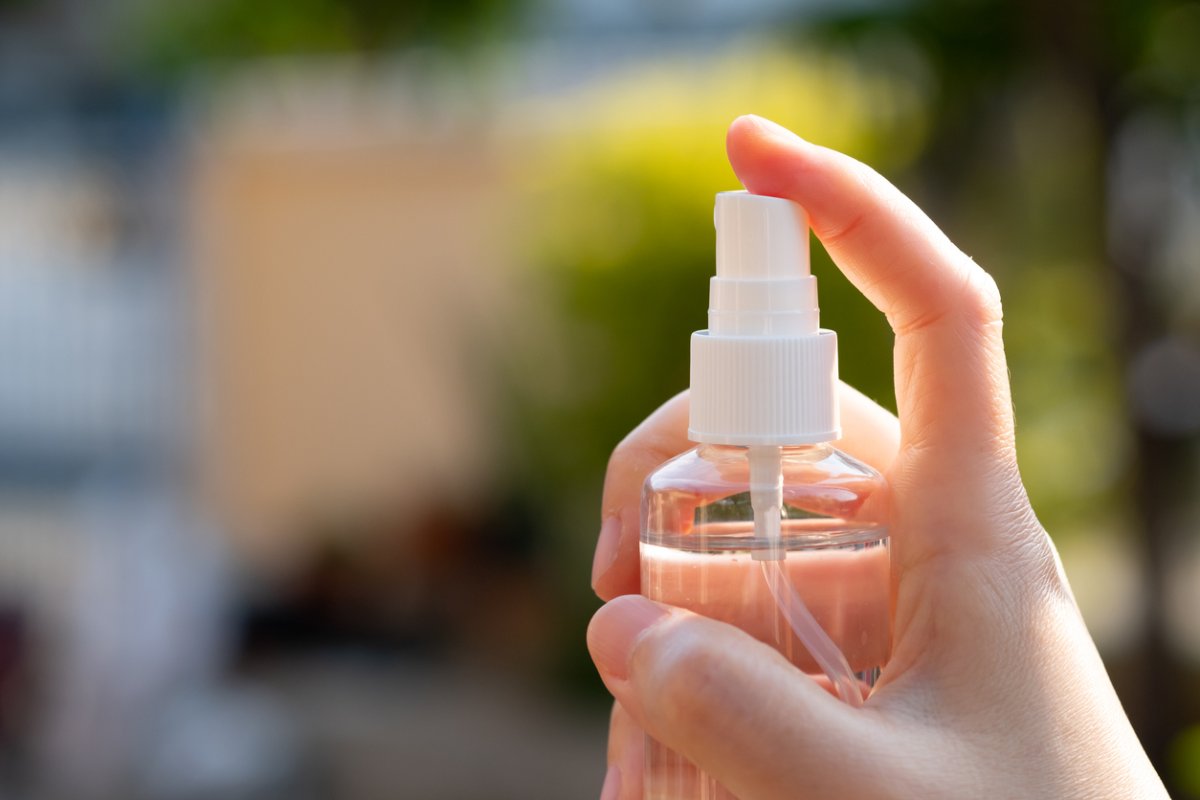

We may earn revenue from the products available on this page and participate in affiliate programs. Learn More ›
Q: A friend recommended making a peppermint oil spray for bugs. While I’m trying to stay away from the dangers associated with chemical pesticides, I’m questioning whether an essential oil will really work. Does peppermint oil repel bugs? Is this a method worth trying?
A: You’re making a smart choice to create a DIY pest-free home by staying away from chemical pesticides. Many scents can deter pests in the garden and home, so asking, “does peppermint oil repel bugs?” is not a silly question.
We reached out to two pest control experts: Nicole Carpenter, the president of Black Pest Prevention in Charlotte, North Carolina, and David Price, an entomologist and the technical director at Mosquito Joe in Virginia Beach, Virginia, to learn more about the efficacy of using peppermint oil as a bug repellent. Read on to see what they say about whether it can help you with your situation, along with some other considerations to keep in mind.
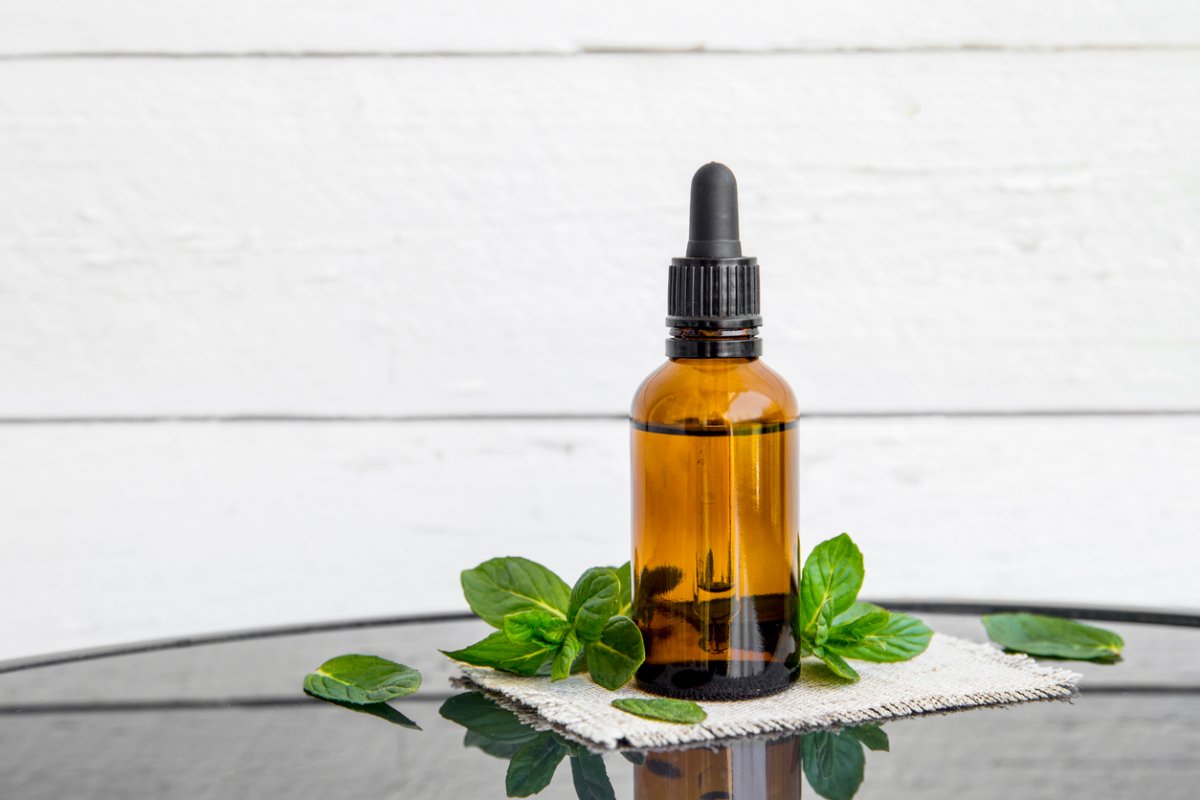
Does Peppermint Oil Repel Bugs?
Yes, when it is used correctly, peppermint oil can be an effective, natural bug repellent. Carpenter explains, “Peppermint has a strong menthol smell and it disrupts [the bugs’] olfactory senses and deters them from entering areas treated with the oil. A strong smell of peppermint oil can also make it difficult for pests to navigate when searching for food sources.” Carpenter explains, since “the availability of food sources is one of the most important criteria for all pest types when choosing a place to settle down, a strong smell can make them want to leave your home.”
You can also use the pungent scent of peppermint oil to make your own natural bug spray. “When concentrated peppermint oil is diluted with a carrier substance, it becomes a safe, soothing, and effective tool for keeping bugs away,” explains Price. A 2011 study published in The Asian Pacific Journal of Tropical Biomedicine, found that peppermint oil offered up to 2.5 hours of protection against yellow fever mosquito bites.
Reapply peppermint oil to maintain its effectiveness.
When using peppermint as a bug repellent, it is important to remember that the strong scent won’t last forever. As it starts to fade, so will its effectiveness at repelling insects. “For ongoing effectiveness,” Carpenter recommends “reapplying peppermint oil every 2 to 3 weeks or more frequently if the scent appears to dissipate quicker, especially in outdoor areas or in environments with high air circulation.”
If you’re applying peppermint oil spray to your skin to prevent mosquito bites, you’ll need to reapply it even more often. “For best results, reapply the homemade repellent every 1 to 2 hours,” says Price.
Peppermint oil is most effective when used in conjunction with other natural repellents.
While a peppermint oil bug spray can deter insects, it shouldn’t be the only natural pest control method you use. “Remember that pests become accustomed to specific smells over time, and using peppermint oil for a long period might be ineffective,” says Carpenter. Instead of relying solely on peppermint oil, she recommends “rotating between different essential oils like eucalyptus oil or cinnamon oil every 3 to 4 months. They also have a pungent smell and are effective at deterring pests.” Carpenter also notes, “while peppermint oil can deter pests, it doesn’t kill them and can hardly be effective as a single method.”
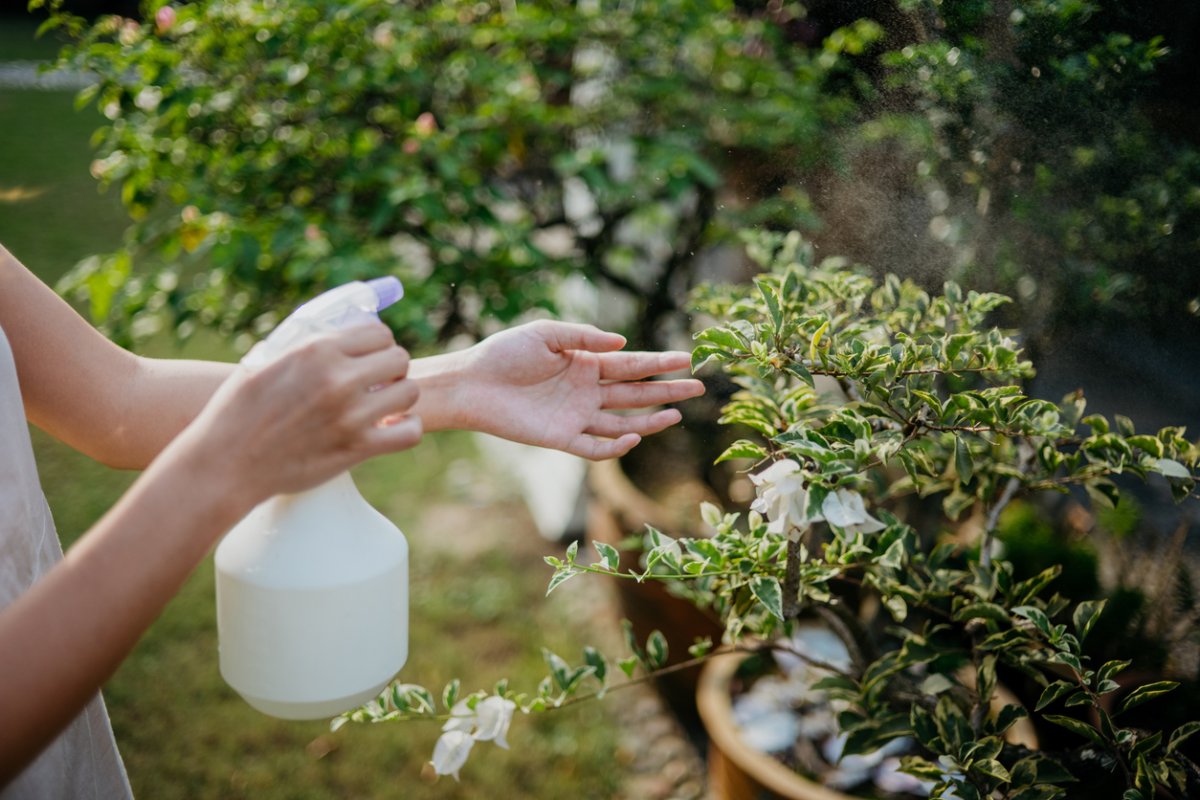
How to Use Peppermint Oil to Repel Bugs in the Home and Garden
The best way to use peppermint oil spray for bugs will vary based on whether you are trying to keep them out of your home, away from your garden, or from swarming around your body and biting you. To use peppermint oil as a bug repellent inside the house, add 1.5 cups of water to a spray bottle. Add about 12 to 15 drops of 100-percent pure peppermint essential oil. Apply the spray to potential entry points, such as door frames, floorboards, and windowsills.
You can also apply the spray directly to any areas where you are experiencing an infestation, such as around the pantry. To help the peppermint odor stick around a bit longer, consider saturating cotton balls with the mixture and placing them around affected areas and entry points.
Peppermint oil also can help repel bugs around the garden. Avoid spraying concentrated oil directly onto plants, as it may damage them. Instead, dilute it with water (about 2 teaspoons of oil for each gallon of warm water), and add 2 tablespoons of liquid soap. To make sure the diluted spray won’t damage a plant, spray the underside of a leaf and look for any signs of damage a day or two later. If everything looks OK, you can spray the solution directly over your plants to make them less appealing to garden pests.
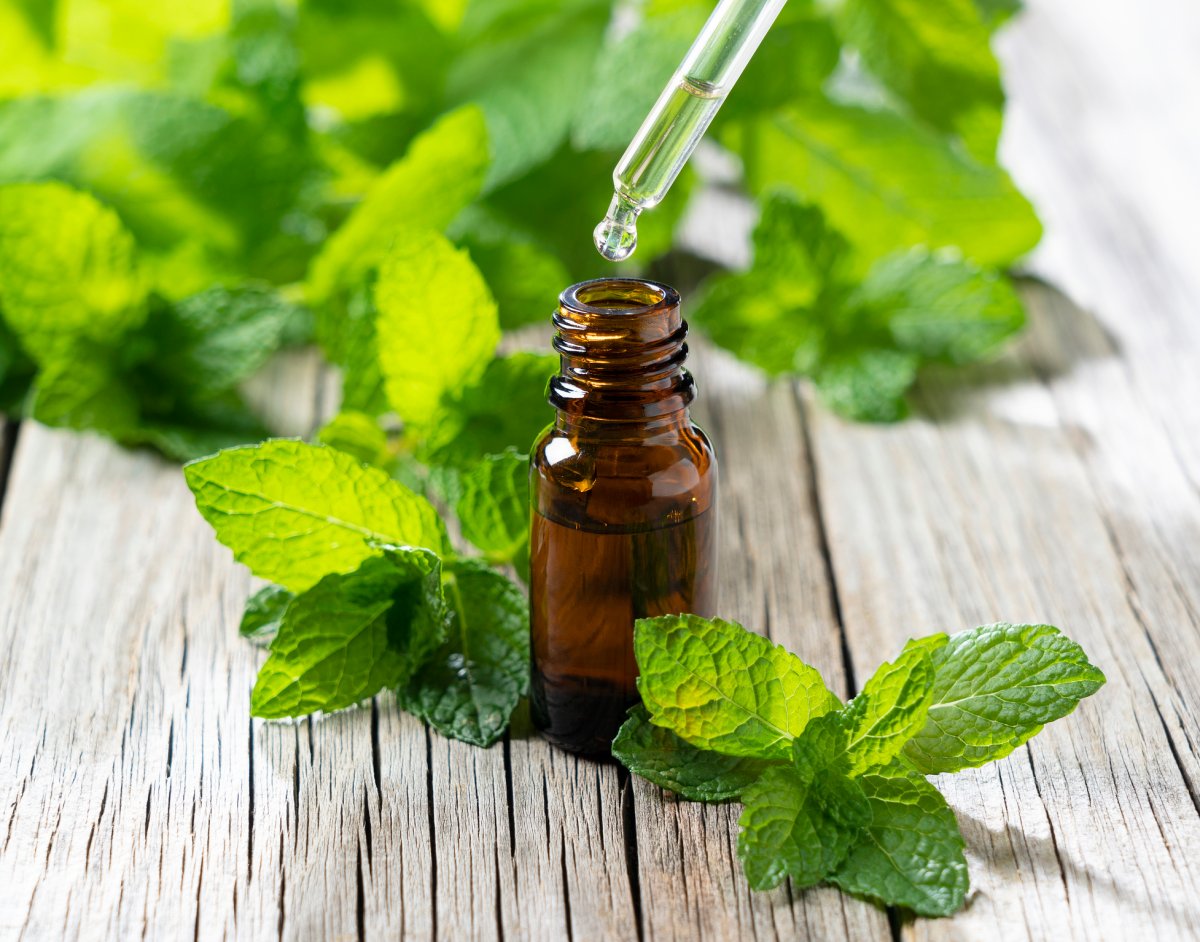
How to Make a DIY Peppermint Oil Mosquito Repellent
Making your own essential oil mosquito repellent is another way to use peppermint oil. According to Price, all you’ll need is ⅓ cup coconut oil and about 15 drops of peppermint oil. “Mix the ingredients in a jar, and apply to skin for a refreshing way to keep insects at bay,” says Price.
When using peppermint oil as a bug repellent, keep safety in mind. As Price explains, “Some essential oils such as peppermint oil can be toxic to animals, so avoid applying any repellent that contains those ingredients to your pets.” Take extra caution and consider consulting a pediatrician before using essential oils on a child. Johns Hopkins Medicine advises against using peppermint oil on any children less than 30 months old, since it might increase the risk of seizures.
Does Peppermint Oil Repel Mice and Other Rodents?
In addition to using peppermint essential oil bug repellent, the oil also could help deter mice and other rodents. According to Carpenter, “Rodents, particularly mice, have a highly sensitive sense of smell. The strong, pungent scent of peppermint oil can be overwhelming to them, masking the scents that usually attract mice to homes and food sources.”
However, keep in mind that you’ll still need to reapply peppermint oil bug repellent and rotate with other natural methods to keep mice away effectively and prevent them from causing damage in the home. Alone, it will not be a sufficient solution to keep mice out of an entire home, but could keep them away from target areas. If you’re facing a large infestation, you might want to reach out to a pest control professional to prevent it from escalating.
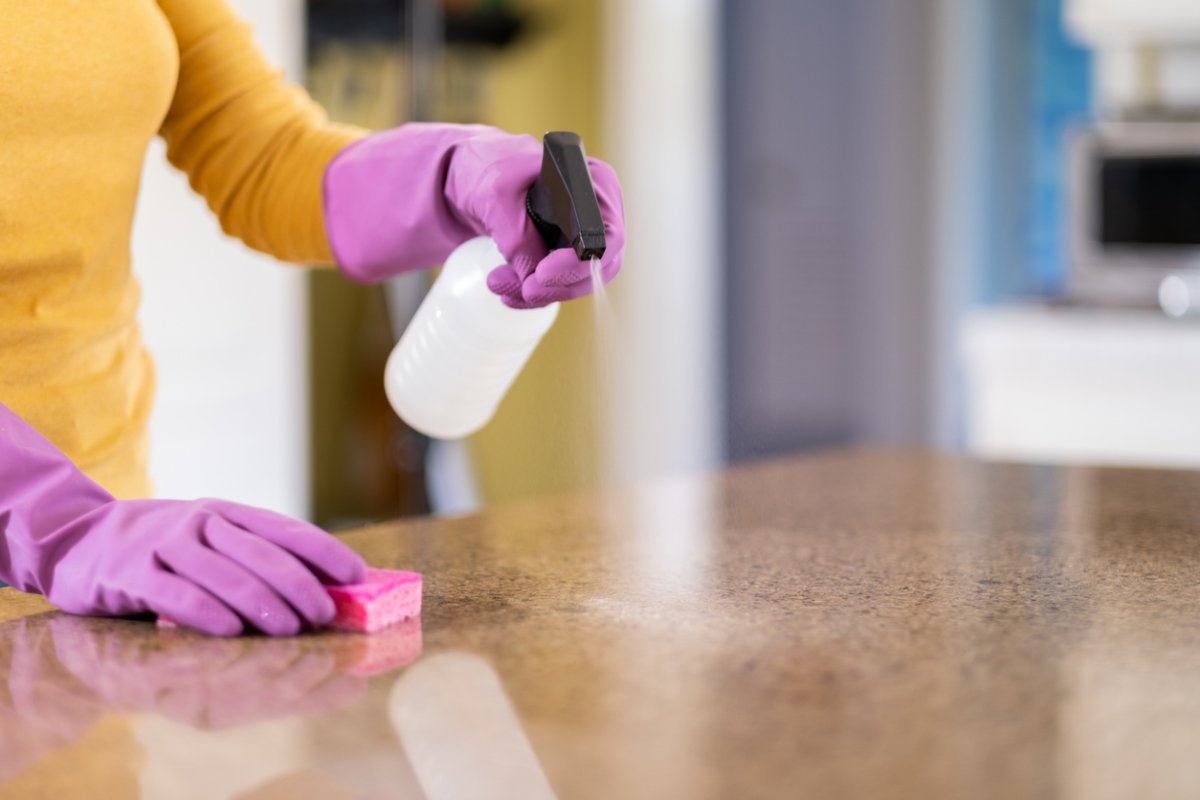
6 Other Peppermint Oil Uses Around the House
Beyond using peppermint oil for bugs, you can use it in other ways around the home and garden. Here are a few additional uses for this essential oil:
- Make a DIY kitchen or bathroom cleaner: Mix a few drops of peppermint oil with water, distilled white vinegar, and alcohol to make your own spray cleaner.
- Make a natural deodorizer for the trash can: Dip a cotton ball in some peppermint oil and put it on the bottom of the can under the bag to keep odors at bay.
- Freshen the air inside: Create a DIY air freshener spray for your home by combining distilled water and 15 to 20 drops of peppermint oil in a spray bottle.
- Provide relief to sore muscles: Soak in the bath with a few drops of peppermint oil to alleviate muscle pain and soreness.
- Relieve sunburn pain: Mix a few drops of peppermint oil with aloe vera gel to alleviate sunburn pain. Peppermint oil is hydrating and may help decrease the pain from the burn.
- Make scented candles: If you add about 15 drops of peppermint oil to melted soy wax, you can make your own tea lights or mason jar candles as gifts or to decorate your home.
Final Thoughts
Using peppermint oil for ants, mosquitoes, mice, and other pests can be an effective component of a pest management plan. However, this essential oil bug spray alone will likely not be sufficient to combat the problem. “Pests become accustomed to the smell and cease to be sensitive to it,” says Carpenter. For that reason, she says it is better to change methods after some time so the bugs won’t adapt to specific odors; as a result, your efforts will be more effective.
